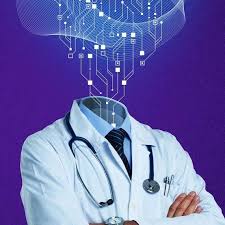In a series of recent studies, artificial intelligence (AI) has showcased its prowess in medical diagnosis, outperforming human physicians across various specialties. The most recent study, published in the Annals of Emergency Medicine in 2023, demonstrated that an AI system named ChatGPT achieved a staggering 97% accuracy rate in diagnosing patients, surpassing human doctors by a significant margin.
This victory for AI is not an isolated incident. Over the past few years, numerous studies have highlighted the capabilities of AI in different medical domains. From cardiology to ophthalmology, AI models have consistently matched or exceeded the diagnostic accuracy of experienced physicians.
The advent of AI in medicine raises important questions about the future of healthcare and the role of physicians. While AI holds the promise of enhancing patient care and streamlining medical processes, it also prompts concerns among healthcare professionals. According to the Medscape 2023 Physician and AI Report, 65% of surveyed physicians express apprehension about AI’s increasing role in diagnosis and treatment decisions.
Dr. Alfredo A. Sadun, a seasoned neuro-ophthalmologist, underscores the prevailing lack of understanding of AI among physicians. Despite its transformative potential, many doctors remain unfamiliar with AI’s capabilities, which largely stem from their limited exposure to technology beyond electronic health records (EHRs).
However, some physicians, like Dr. Anthony Philippakis, see AI as a welcome aid rather than a threat. Drawing from his experience as both a cardiologist and a data scientist, Philippakis emphasizes the opportunity for AI to alleviate physicians’ administrative burdens, allowing them to focus more on patient care.
Yet, skepticism persists among some healthcare providers. Dr. John D. Nuschke, a primary care physician, questions AI’s ability to replicate certain aspects of medical practice, such as physical examinations and nuanced diagnostic reasoning. He recounts instances where AI-driven systems delivered diagnoses to patients before physicians could, raising concerns about the loss of personal interaction and clinical judgment.
Interestingly, AI’s potential extends beyond diagnosis and treatment. Studies suggest that AI-driven chatbots exhibit higher levels of empathy and communication skills compared to human physicians. This raises the prospect of AI not only augmenting medical tasks but also enhancing patient-doctor interactions.
Ken Mallon, a clinical psychotherapist and data scientist, anticipates AI’s integration into mental health care, predicting a future where AI therapists seamlessly assist patients. However, Aditya Jain, a medical student at Harvard, stresses the need for medical education to adapt to this evolving landscape, equipping future physicians with the skills to effectively utilize AI in their practice.
Despite the apprehensions and uncertainties surrounding AI’s ascent in medicine, there is consensus among many healthcare professionals that embracing AI as a supportive tool rather than a replacement is key. Dr. Nathaniel Chin emphasizes the importance of AI being implemented thoughtfully, with a focus on enhancing, rather than supplanting, human expertise.
As AI continues to advance, the dialogue between technology and medicine evolves. While AI may outpace human intelligence in certain domains, its integration into healthcare holds the promise of reshaping medical practice for the better. As Dr. Philippakis aptly puts it, the future of medicine belongs not to the AI practitioner, but to the AI-enabled practitioner.











